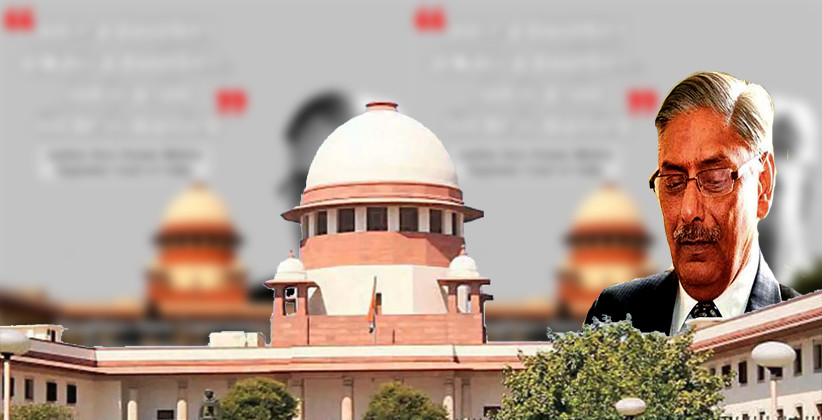In a landmark judgment, the Supreme Court on Tuesday (August 11,2020) ruled that a daughter will have equal rights as sons under the Hindu Succession (Amendment) Act, 2005, irrespective of whether the father was alive or not at the time of the amendment. A three-judge bench headed by Justice Arun Mishra pronounced the judgment on a batch of appeals that raised an important legal issue whether the 2005 amendment, which gave equal right to daughter in ancestral property, has a retrospective effect.
While overruling the contrary judgments made in Prakash vs. Phulavati and Mangammal vs. T.B. Raju, the court held, Daughters must be given equal rights as sonsThe daughter shall remain a coparcener throughout life, irrespective of whether her father is alive or not". The bench also ruled that rights under the amendment are applicable to living daughters of living coparceners as on 9-9-2005, irrespective of when such daughters are born.
This judgment came in an appeal filed against the Delhi High Court judgment where the court had noticed a conflict of opinion between Prakash vs. Phulavati, (2016) and Danamma @ Suman Surpur vs. Amar, (2018) with regard to the interpretation of Section 6 of the Hindu Succession Act, 1956 as amended by Hindu Succession (Amendment) Act of 2005. In the former case, the court held that there is neither any express provision for giving retrospective effect to the amended provision nor necessary intendment to that effect, whereas, in the case of Danamma @ Suman Surpur vs. Amar, the court observed that, It is apparent that the status conferred upon sons under the old section and the old Hindu Law was to treat them as coparceners since birth. The amended provision now statutorily recognizes the rights of coparceners of daughters as well since birth. The section uses the words in the same manner as the son. It should, therefore, be apparent that both the sons and the daughters of a coparcener have been conferred the right of becoming coparceners by birth. It is the very factum of birth in a coparcenary that creates the coparcenary, therefore the sons and daughters of a coparcener become coparceners by virtue of birth. Devolution of coparcenary property is the later stage of and a consequence of the death of a coparcener. However, the Delhi High Court followed the judgment of Praksh vs. Phulavati.
The 2005 amendment states that sons and daughters of a coparcener shall by birth become a coparcener in their own right but the amendment did not provide a retrospective proviso to the section.
Thus, the top courts clarification is significant in the sense that it has set aside various previous judgments refusing the daughters right over the parental property if both, her father and she did not exist before the commencement of the 2005 amendment.
The bench of judges has asked the concerned subordinate courts, where several matters remained pending due to the top court judgment, to dispose them of within six months.






